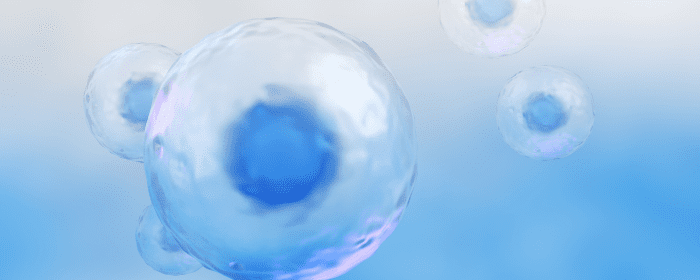Multiple sclerosis (MS) is a chronic inflammatory disease that attacks myelin, the protective sheath that covers nerves and causes progressive and serious communication issues between the brain, central nervous system, and the rest of the body[1].
Currently, it’s estimated that over 2.3 million people worldwide, and over one million people in the US have a diagnosis of MS[2].
While there have been significant improvements in treatments designed to stabilize, delay, and even improve symptoms of MS, new and more effective treatments are needed to improve the long-term outcome associated with the condition.
One area currently being investigated as a potential therapeutic option for treating MS is the use of regenerative medicine, also known as stem cell therapy, and specifically treatment using mesenchymal stem cells (MSCs).
In this review of evidence from preclinical and clinical studies, Gugliandolo et al. examine studies involving the use of MSCs or their derivatives in vivo models of MS and patients affected by MS. The authors also examine and discuss the feasibility of autologous MSCs therapy for MS patients.
Specifically, and when assessed in terms of effectiveness when treating MS, the therapeutic potential of MSCs was associated with their differentiation capacity and paracrine effects, their ability to differentiate toward oligodendrocytes and express oligodendrocyte progenitor cell (OPC) markers, and their capacity for homing (moving towards the damaged area following chemical gradients).
As part of this review, the authors also examined the effectiveness of various sources of MSC in MS models, these sources included bone marrow MSCs (BM-MSCs), adipose tissue-derived MSCs (AD-MSCs), periodontal ligament stem cells (PDLSCs), skin-derived MSCs (S-MSCs), Wharton’s jelly-derived MSCs (WJ-MSCs), human umbilical cord MSCs (UCMSC), human amnion mesenchymal cells (AMCs), placental derived MSCs (PMSCs), and decidua derived MSCs (DMSCs). According to the research reviewed by Gugliandolo et al., all MSCs, regardless of where they were harvested from, demonstrated beneficial effects in the therapeutic treatment of MS.
Specifically, the results demonstrated that MSCs were able to produce some form of protective effects in reducing inflammatory cell infiltration, disease score, demyelination, and blood-brain barrier disruption.
A review of 29 phase 1 or 2 clinical trials registered on clinicaltrials.gov demonstrated that MSCs, regardless of the type and method of administration, demonstrated to be safe and absent of severe adverse effects with the majority demonstrating measurable improvements when used in MS patients.
While clinical trials demonstrated the safety of administration of MSC in MS patients, the authors were particularly interested in learning if autologous MSC transplantation presented some advantages over heterologous administration.
The authors of this review found that samples obtained from healthy controls and MS patients showed similar features, indicating the possibility of autologous stem cell therapy in MS patients. However, other studies found that MSCs obtained from MS patients exhibited a different transcriptional pattern and fewer immunosuppressive functions compared to healthy donor MSCs.
Gugliandolo et al. point out that limits to these experimental studies include the use of animals of a single gender, given that sex-dependent differences exist and the use of different MS models, different number of transplanted cells, different MSCs sources, and routes of administration. These limitations make it difficult to define the optimal treatment in terms of cell type, dose, and administration conditions.
The authors conclude that clinical trials demonstrate the safety and feasibility of MSCs treatment, and also some improvements, but more data on larger cohorts are required to establish their efficacy. Considering the controversial results pertaining to the features of MSCs derived from MS patients, the authors also call for additional research in order to conclusively determine the safety and efficacy of autologous MSCs therapy in MS patients.
Source: “Mesenchymal Stem Cells in Multiple Sclerosis – NCBI.” 17 Nov. 2020, https://www.ncbi.nlm.nih.gov/pmc/articles/PMC7698327/.
[1] “Multiple sclerosis – Symptoms and causes – Mayo Clinic.” 7 Jan. 2022, https://www.mayoclinic.org/diseases-conditions/multiple-sclerosis/symptoms-causes/syc-20350269.
[2] “Understanding MS | National Multiple Sclerosis Society.” https://www.nationalmssociety.org/What-is-MS/MS-FAQ-s.


 St. Petersburg, Florida
St. Petersburg, Florida
